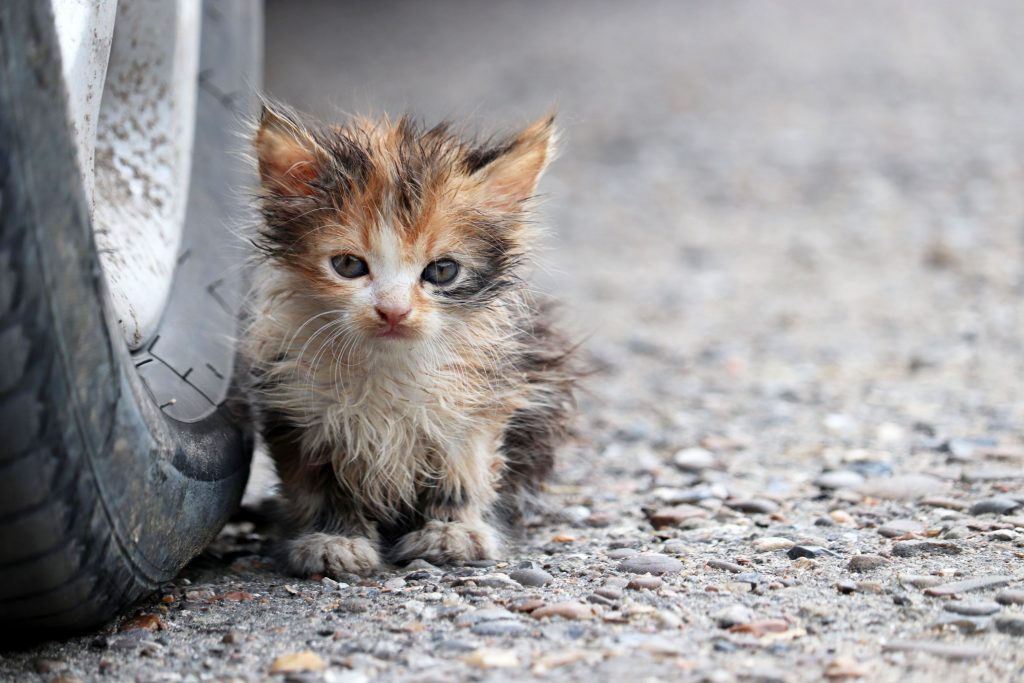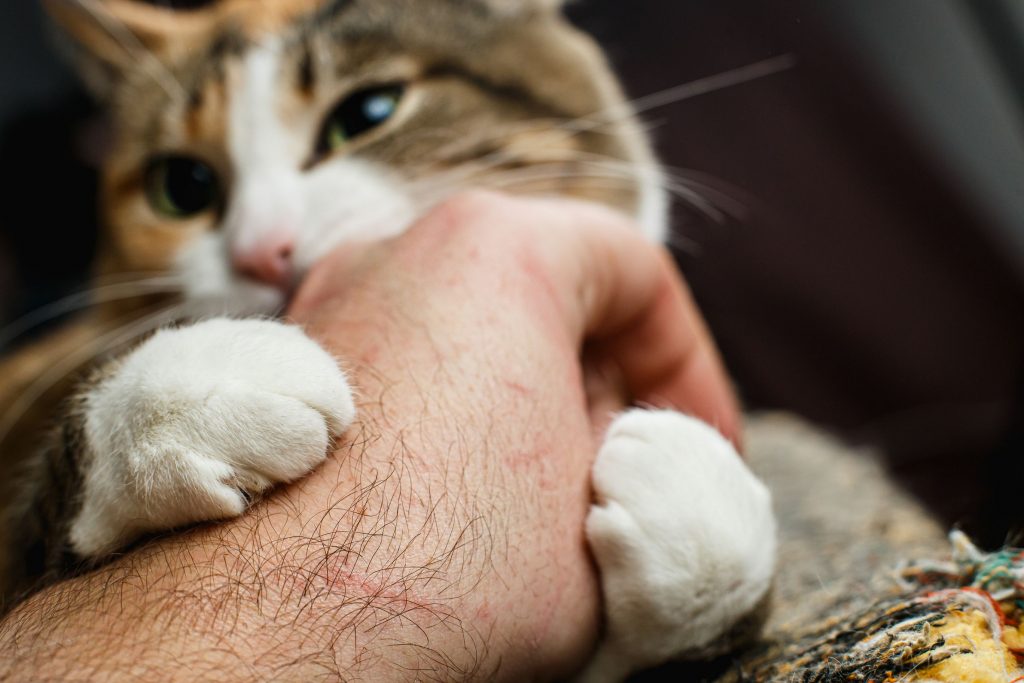Posts in Category: Pet Health & Wellness
Pet Wellness Tips for 2023
The new year is the time for new beginnings, and while you’re making a list of New Year’s resolutions, make sure you include ways to enrich the lives of your pets as well.
At Volunteer Veterinary Hospital, we want to help you make 2023 your pet’s healthiest and happiest year yet. Here are our team’s top wellness tips for the new year.
Continue…Supporting the Needs of an Overweight Pet
Just as it is with our ever-expanding waistlines, extra pounds on a pet don’t appear overnight. Successive weeks or months of a few extra treats a day, or a little less exercise, create the perfect storm for weight gain. The fact is, pet obesity is on the rise. Knowing what’s at stake for an overweight pet can help turn the tide and with a proactive, consistent approach, pet owners can have a direct impact on a pet’s overall health and longevity.
Continue…Stand Up To Your Pet’s Bad Breath
One of the best parts of modern pet ownership is that so much is now known about caring for them. No longer forced to simply accept things we wish were different, we can affect change in our pet’s behavior, appearance, and overall health. Instead of shrugging off, say, bad breath, we can design an approach that not only works for owners, but also helps pets in the long run. If your pet’s bad breath clears the room, it’s time to help them through.
Continue…Have You Heard Of Hyperthyroidism in Cats?
Cat owners are typically looped into the common potential health issues facing modern felines. In addition to heartworm disease, diabetes, feline leukemia virus (FelV), and feline immunodeficiency virus (FIV), hyperthyroidism in cats is increasingly prevalent. Characterized by weight loss, increased appetite/thirst, and vomiting or diarrhea, this condition must be promptly addressed. The good news is that once hyperthyroidism in cats is properly managed, a high quality of life is attainable.
Anatomy Details
Located within the neck, the thyroid gland produces a hormone that regulates metabolism. When too much hormone is produced, metabolism increases which explains why cats lose weight despite a voracious appetite. While this symptom is a red flag, many owners don’t automatically realize that it’s tied to something serious.
Cats between the ages of 10-13 are commonly diagnosed with hyperthyroidism. Blood tests and other diagnostics can help diagnose hyperthyroidism in cats, and rule out a series of other common conditions like kidney disease, diabetes, and cancer (all share similar clinical symptoms). We may also need to perform an electrocardiogram, chest x-ray, ultrasound, and blood pressure to gain a better understanding of a cat’s condition.
Since a vast majority of cases are linked to a benign tumor on one or both lobes of the thyroid gland, it is critical to move quickly toward effective treatment. Prognosis is usually very good if caught early.
Next Steps
Depending on the severity, hyperthyroidism in cats may be properly managed with medical treatment, close monitoring, and prescription diet. Medication taken twice a day for life can decrease the production of thyroid hormone.
Injections of radioactive iodine can also decrease thyroid hormone levels in a shorter amount of time, but require a hospital stay. This is often the fastest and safest method to lower thyroid hormone levels.
Surgical removal of the thyroid gland may be necessary in extreme cases. However, the elimination of the thyroid gland may result in serious health complications.
Every Step of the Way
Your team at Volunteer Veterinary Hospital understands that hyperthyroidism in cats can be very challenging to face. Due to its effect on feline blood pressure, heart health, eye health, neurologic functions, and the kidneys, this condition must be closely observed. If we’re able to catch the disease early on, hyperthyroidism in cats can be effectively treated.
Hyperthyroidism in Cats
Your cat’s annual wellness exam creates the opportunity to catch health problems before they get out of hand. Early detection can lead to a better prognosis, affecting your cat’s overall health and lifespan.
Remember, if you see any changes to your cat’s eating/drinking behavior, vomiting and/or diarrhea, poor coat quality, and weight loss, please don’t hesitate to call us at (865) 609‑0311.
Tips for First Time Pet Owners
Pets bring endless amounts of unconditional love and joy, which makes it hard to resist bringing one into your home. They can also bring some unpredictable situations, however, that require a certain amount of preparation. Your friends at Volunteer Veterinary Hospital are here to give you some tips on first time pet ownership so you can enjoy a long and happy life together:
Continue…The Proper Place: When to Pay Attention to Your Dog’s Penis
You know your male dog has one, but it’s easier or more comfortable to ignore it. That is, until your dog’s penis appears to be…stuck. Many dogs will go through their lives without needing any attention to their nether parts. But it’s just as common for dogs to get into a predicament known as paraphimosis, and it can become a real pet emergency.
Continue…How To Keep Your Cat From Scratching You.
Pancreatitis in Pets: Signs and Symptoms
Thanksgiving day is almost here. We loosen our belts and prepare to feast with all our favorite dishes on the table. While catching up with family and friends, it can be easy to forget your pets are nearby hoping for some scraps. There are a lot of Thanksgiving foods that can mean health problems for your pets, however.
Continue…Your Green Thumbs Doesn’t Mean No Paws: Tips for Pet-Safe Gardening
The love of plants and the love of animals often go hand-in-hand. Many plants, however, are toxic to pets and the avid gardener must always have this in the back of their mind. Volunteer Veterinary Hospital knows, though, that plants and pets can coexist harmoniously. Read on to learn how to be sure that your gardening is pet-safe gardening.
Continue…Allergies in Dogs (and 10 Things You Can Do at Home to Help)
Allergy season in Tennessee is upon us, whether you be human or canine. Allergies in dogs tend to manifest a little differently than they do in us, however. While people suffer from stuffy noses, sinus pressure, and itchy eyes, our pets tend to deal more with itchy, inflamed skin.
Continue…










